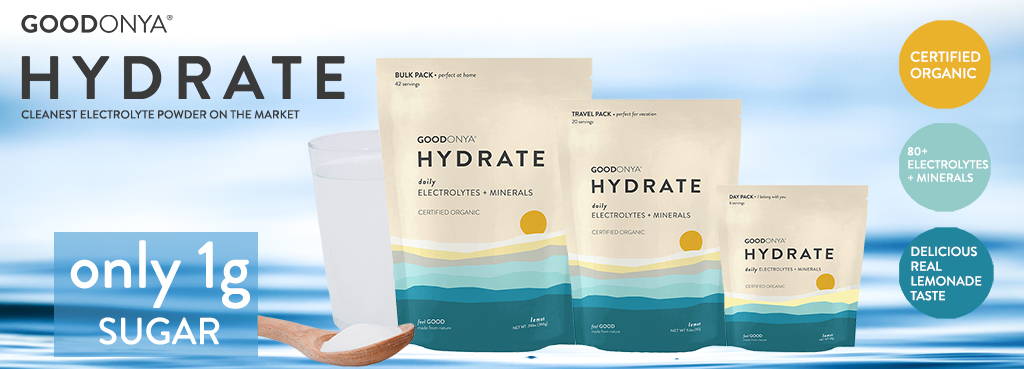
WHAT TO DO WHEN YOU HAVE SEVERE MORNING SICKNESS
About 1 in 50 pregnant women suffer from Hyperemesis Gravidarum (HG) during their pregnancy. It's a severe form of morning sickness that can leave you struggling to function. Hyperemesis Gravidarum is when nausea and vomiting during pregnancy become so severe that it surpasses what is considered to be normal morning sickness.
Hyperemesis Gravidarum is characterized by prolonged periods of nausea and vomiting, preventing women from keeping up with their daily food and fluid intake requirements. What's unfortunate is that it happens during a time when healthy eating and fluid intake are considered to be most critical.
Not a lot of research has been done on HG. As a matter of fact, until the 1960's it was believed to be a psychological issue that some women simply used to get attention. I don't know about you, but I can think of more pleasant ways to get attention than making myself throw up all day.
So let's take a closer look at more of the symptoms associated with HG and some ways to avoid getting dehydrated while trying to manage it.
SYMPTOMS OF HYPEREMESIS GRAVIDARUM
Obviously, nausea and vomiting are the most common symptoms associated with HG. However, there are some other symptoms to be aware of. There isn't a lot of research out there. Knowing the symptoms to report to your doctor can help rule out other complications such as gallbladder issues, appendicitis, and other infections or viruses.
Symptoms of HG include:
- Increased salivation
- Intractable nausea and vomiting
- Sensitivity to light, noise, and temperature changes
- Hypersensitivity to certain smells (not limited to food)
If you are experiencing these symptoms, it is important to talk to your doctor. While doctors don't readily hand out prescription drugs for nausea during pregnancy, they will if your symptoms are so severe that you or your baby could be at risk.
TREATMENT FOR HYPEREMESIS GRAVIDARUM
According to the American College of Obstetricians and Gynecologists, genetics play a large part in determining whether a woman will have HG during pregnancy. Here's an interesting fact, it can be inherited from your mother or your father's side of the family. Studies show that approximately 23 percent of women with HG had a paternal grandmother who suffered from it.
Some treatment options form HG include:
- I.V. Fluids are given to replace fluids and electrolytes when women cannot keep anything down at all (more about that later).
- I.V. Vitamins are also given if women are unable to take their prenatal vitamins.
- In severe HG cases, tube feedings may be initiated to make sure that both mom and baby are getting enough nutrients to sustain the pregnancy. Especially in pregnant women who are experiencing weight loss.
- Antiemetic medications may be used to control vomiting and severe nausea. The most commonly prescribed antiemetics are: ondansetron (Zofran), metoclopramide (Reglan), and promethazine (Phenergan).
- Avoid nausea triggers such as smells, loud noises, getting too hot, or bright lights.
- Try and find a support group. Sometimes talking to someone going through the same thing or has gone through it can provide some valuable tips.
Once you can keep down food and fluids, it is important to stay hydrated. Severe nausea and vomiting is one of the quickest ways to get dehydrated and lose valuable electrolytes. Don't worry, though. There's a solution.
AVOIDING DEHYDRATION WITH SEVERE MORNING SICKNESS
If you have suffered from severe nausea and vomiting or hyperemesis gravidarum at the beginning of your pregnancy, it is more important than ever to keep yourself hydrated for the rest of your pregnancy. Water intake recommendations from pregnant women is 8 to 12 glasses of water a day.
Water is important, but electrolytes are essential too, and unfortunately, you don't get those in water alone. Sports drinks like Gatorade and Powerade do have electrolytes, but they are accompanied by a lot of sugar that can actually make nausea worse. Not to mention the fact that they are loaded with artificial ingredients that tend to overshadow the electrolytes they do contain.
Look for a natural oral rehydration solution like HYDRATE. Mix one tablespoon of HYDRATE powder with 16 ounces of water in your water bottle when you get up in the morning. You will be getting whole, organic ingredients and the highest quality electrolytes, and only 1 gram of sugar!
It's delicious and safe to drink all day. The light homemade lemonade taste is not overbearing, just clean and fresh.
WRAP UP
If you are suffering from severe morning sickness or HG, just know that it will eventually go away, and you will be able to move on with the joy of pregnancy. Be sure to seek out support from other pregnant women who are going through or have gone through a similar experience. It really does help to know that you are not alone in your struggle.
Be sure to make what you are able to eat count. Even if it's only ice cream, you are getting a good dose of calcium and all the nutrients in milk. If cold foods aren't working for you, then try hot soups and teas. Most importantly, though, stay hydrated.
Getting dehydrated can actually make you feel worse. I know you probably think that is not possible right now, but if you have ever been dehydrated, you know that it is indeed possible. Take care of yourself and your baby, eat what you can, and use HYDRATE. Trust us. You'll be glad you did.
